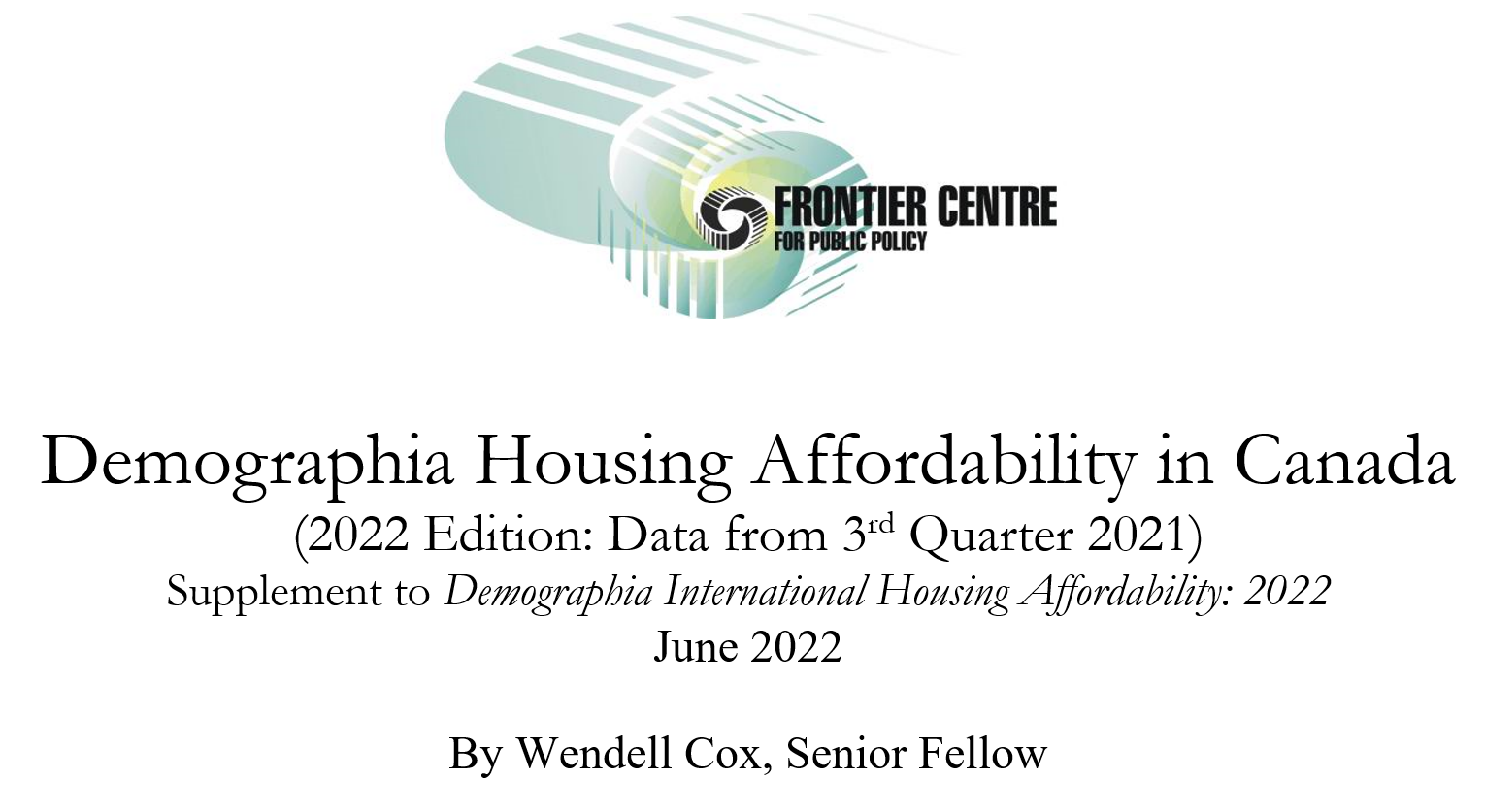Affordability Continues to Decline Sharply in Canada
WINNIPEG, June 28, 2022 – The Frontier Centre for Public Policy has released its latest housing affordability rankings for the 46 largest cities in Canada. Prepared by Frontier senior fellow Wendell Cox, this Canadian survey supplements the recently released Demographia International Housing Affordability report which rates housing affordability in 92 major housing markets in eight nations: Australia, Canada, China, Ireland, New Zealand, Singapore, the United Kingdom, and the United States.
Highlights of supplemental Canada-specific survey based on the most recent statistics from Statistics Canada include:
- Canada has a severe housing affordability crisis, centred in the census metropolitan areas (CMAs) of Vancouver and Toronto.
- Vancouver and Toronto, are the third and tenth least affordable markets among the 92 markets surveyed in the Demographia International Housing Affordability report.
- The increased cost of housing has resulted in serious increases in the cost of living which has spread to other communities in BC and Ontario.
- At the same time, housing in some communities is much more affordable, especially in the Prairies, Atlantic Canada, and in Quebec but not in Montreal.
Cox uses the international standard—Median Multiple—to rate housing affordability. The median multiple is a price-to-income ratio, which is the median house price divided by the gross median household income (pre-tax). Middle-income housing affordability is rated in four categories, ranging from the most affordable (“affordable”) to the least affordable (severely affordable).
In 2021, there were 25 “severely unaffordable” housing markets in Canada out of 46 communities. This is up from 18 severely unaffordable communities in 2019. There are only three “affordable” markets, which is down from eight in 2019.
As a result of this evidence, there is considerable concern about rising inequality in Canada’s urban communities. Housing affordability has been shown to be a principal driver of inequality. Wealth inequality can be expected to intensify so long as house prices continue to rise faster than incomes.
There has been some moderation of house prices in recent months, but even a return to pre-pandemic prices will leave many communities with a severe housing crisis.
Cox observes that demand for housing, especially in suburban, exurban, and rural areas has increased during the pandemic. Many households sought to expand their living space as working at home increased. This has resulted in a “demand shock” or a sudden unexpected dramatic increase in the demand for housing.
To read this intriguing report and to find out how your city ranks for Housing Affordability please download the report here.
For more information contact:
Wendell Cox
Senior Fellow, Frontier Centre for Public Policy
Principal of Demographia.com, author of Demographia World Urban Areas and the Demographia International Housing Affordability Surveys (16 annual editions).
1 618 616 1363
E-mail – demographia@gmail.com
The Frontier Centre for Public Policy is an independent, non-profit organization that undertakes research and education in support of economic growth and social outcomes that will enhance the quality of life in our communities. Through a variety of publications and public forums, Frontier provides new insights into solving important issues facing our cities, towns and provinces. These include improving the performance of public expenditures in important areas such as local government, education, health and social policy. The authors of this survey have worked independently and the opinions expressed are therefore their own, and do not necessarily reflect the opinions of the board of the Frontier Centre for Public Policy.



